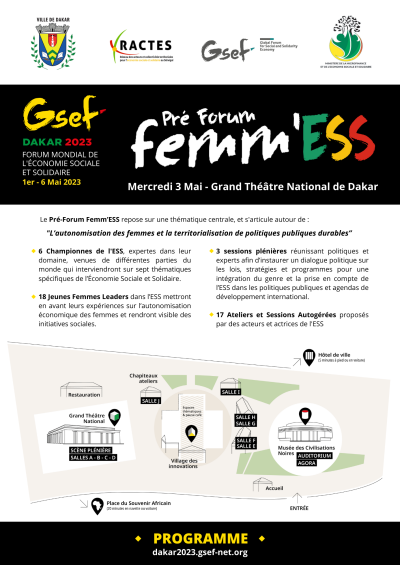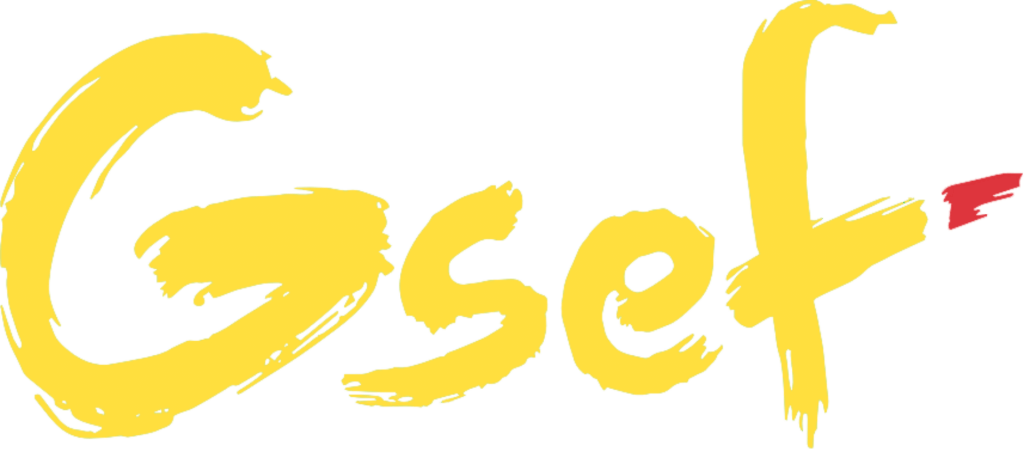Women's Day for SSE
3 May 2023

A look back at the Women's Day for SSE
Read the detailed report on the Women’s Day for SSE, held on Wednesday 3 May 2023 in Dakar, in the Forum Proceedings! Read the editorial by the co-organisers, the summaries of the 3 plenary sessions and the 10 workshops and self-organised sessions, and the portraits of the Champions and Young Women Leaders who brought the event to life.
Socio-economic empowerment of women and the territorialisation of sustainable public policies
The growing contributions of women in households, in systems for producing goods and services and in economies are still little recognised, both in Africa and in the rest of the world, despite significant contributions: 61.9% of the economic activitý rate of women in Africa, 70% of the agricultural force on the African continent, 90% of all food on the continent (OECD). How can we showcase women’s social and economic empowerment in different territories? What structuring investments for the benefit of women and concrete long-term actions? What funding policies and mechanisms should be in place to support women’s productive activity? What funding policies and support mechanisms could back women’s productivity? How can we strengthen women’s egalitarian participation, no longer simply an issue of justice or democracy, but a requirement for their social and economic emancipation in working to reduce inequalities and include women in public policies and programs?
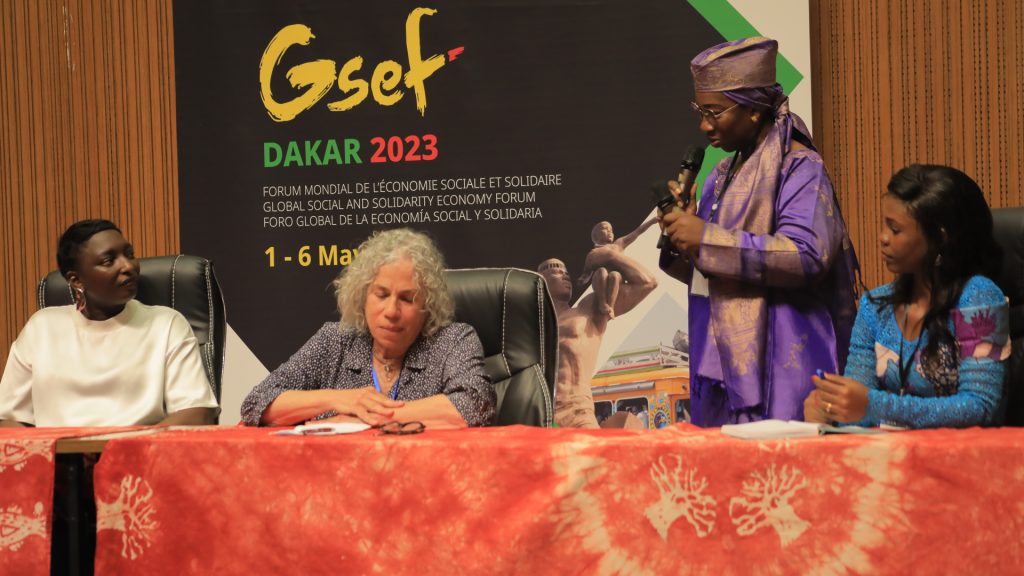
A Pre-Forum dedicated to Women
This Women’s Day for SSE is based on the central theme of “the empowerment of women and the territorialisation of sustainable public policiesis an opportunity to reflect on these issues.
The day of 3 May 2023 was dedicated to the question of the role and place of women in the promotion of a social and solidarity-based economic model. Six women “Champions”, all experts in their field, spoke at the Grand Théâtre National in Dakar on six specific themes covering various aspects of the Social and Solidarity Economy.
18 Young Women Leaders in the SSE sector from Africa, America and Europe also highlighted their experiences of women’s economic empowerment and gave visibility to social initiatives.
The objectives of this day
Ensuring quality participation of women
in the transformation process through intergenerational dialogue to highlight the opportunities offered by the SSE.
Create spaces
for exchange, learning, capitalisation and mobilisation of resources for the implementation of transformational innovations in the SSE sector, in favour of women.
Stimulate a new reading
of the challenges and strategies for promoting SSE through a segment of women politicians for strong advocacy that positively influences policies and programmes.
Enable a critical mass of stakeholders to better understand
the challenges of the SSE and its importance in ensuring food, economic and financial sovereignty in our countries, and the central role of women in this process.
The Women's Day for SSE in pictures
Presentation of the SSE Champions and Young Women Leaders

Sustainable blue economy, preservation of artisanal fishing, creation of new sustainable jobs and social and environmental protection
Imen Ouardani currently holds the post of technical advisor on awareness-raising and inter-societal dialogue and is coordinator of the institutionalisation of the national “water 2050” strategy within the ARESET project at GIZ, Tunisia. Former deputy mayor and chair of the Commission for gender equality for the City of Sousse, she lead projects on migration, youth policies and SSE, and she participated to a project on the inclusion and empowerment of women in Sousse. In 2020, she joined iesMed, a European cooperative promoting SSE in the Mediterranean, as director of development and partnerships in Tunisia and executive vice-president of the MedEBS Sousse 2021 forum.Apart from her professional activities, she is a founding member of the Rotary Club Sousse Esplanade Boujaafar, in charge of the “water” axis.
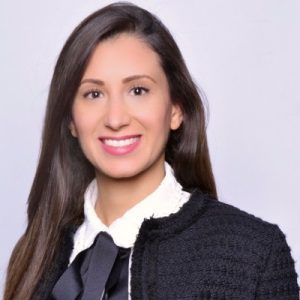

Aminata Sidibé
A business leader and independent researcher, Aminata has spent 8 years travelling across Africa to train men and women entrepreneurs to create responsible rural businesses. She also works as a consultant for international organisations.
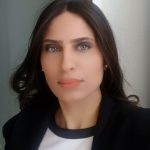
Emna Sohlobji
A lawyer specialising in marine law, Emna is the founder of Tellus Advisory, a marine consultancy and development company. It promotes a feminist-ecological vision of the Law of the Sea that breaks with gender stereotypes.
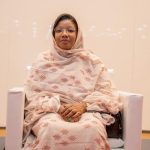
Aminetou Bilal
Aminetou is president of the NGO Selfie Mbalite, which promotes environmental protection and ecological development. A member of several networks and working groups, she is the regional focal point for Sustainable Development Goal 14 on oceans within the United Nations Major Group for Youth and Children.

Territorial, collective and sustainable green economy, food self-sufficiency and its governance
Khady Fall Tall graduated from the Ecole Nationale d’Administration du Sénégal beforegoing on to study at the Centre d’Etudes Diplomatiques et Stratégiques of Paris. She is today the president of the Association of Women of West Africa (AFAO) in Senegal Created in 2005 and operating in fifteen countries , the AFAO focuses its actions essentially on agriculture and capacity building for women in techniques for processing agricultural products. The association promotes local production and the role of women in agricultural practices. Ms. Fall Tall is a member of several West African institutions, networks and initiatives, including the Food Crisis Prevention Network (RPCA) and the AGIR Agriculture Platform under the aegis of theWAEMU.
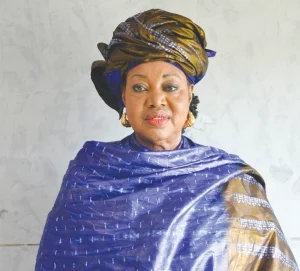

Melvina Covo
Melvina is Managing Director and co-founder of EMBALLE BÉNIN SERVICES, a company specialising in the production of biodegradable paper packaging. She is also an active member of the African Women Leaders Network (AWLN – BENIN) in the Youth Caucus for Financial Inclusion.

Geneviève Rajotte Sauriol
Geneviève is co-founder of Bleu forêt, a cooperative of women workers that puts communication at the service of the common good. This social economy company works exclusively with non-profit organisations or communities wishing to promote a socio-ecological transition project.
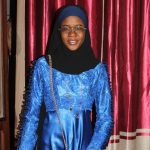
Ndeye Khadiome Ndong
Manager of Dakane Agro-Cosmo, Ndeye Khadiome is campaigning to reduce waste in mango cultivation. The association transforms unsold goods into food products (crisps, dehydrated powder, etc.), cosmetics (Mango butter) or compost. The organisation also promotes the professional integration of disabled people.

Digital economy and smart territories
Marie Lucienne Rattier obtained a Master’s degree in management from ISFPS LEADER (Institut Supérieur de Formation Paramédicale et Sciences-Sociales) and completed the management training course for directors of local public companies at HEC ExecutiveEducation. She is currently Deputy Councillor in charge of digital development, digital transformation and innovation at the Collectivité Territoriale de Guyane (France). She is also President of GDI (Guyane Development Inovation) an agency supporting economic development through innovation, but also President and CEO of SPLANG (local public company for digital development in French Guiana). Alongside her duties, Ms. Marie Lucienne Rattier is BtoB and BtoC Sales Director at SFR Caribbean in French Guiana since 2013.
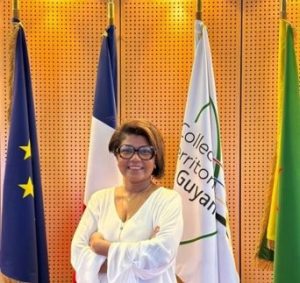

Matina Razafimahefa
Matina createdSayna with the aim of helping disadvantaged young Madagascans to benefit from digital training that will enable them to enter the working world as developers or in other digital professions.
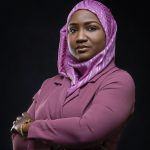
Yacine Sarr
A young IT specialist and tech entrepreneur, Yacine has developed a Digital Health solution in the form of a web-mobile application that makes access to healthcare accessible and automatic. The application is accompanied by a digital health card that can be reloaded by the patient.

Sarah Myriam Tidou
Sarah is the founder of Oasis Corporate, a company involved in the digital transformation of small and medium-sized enterprises. Winner of several awards, she created the @Kissi programme, a range of digital solutions tailored to income-generating activities in the informal sector, particularly for women.

Social and solidarity economy and sustainable development, links between practices and research.
Nancy Neamtan has internationally recognised expertise in the Social and Solidarity Economy, social finance and local development. She was founder and CEO of the Chantier de l’Economie Sociale, an organisation dedicated to promoting and developing the social economy in Quebec from 1996 to 2015, after having directed the economic and social revival of Montreal’s South-West from 1989 to 1996. Co-founder and former president of the Réseau d’investissement social of Quebec, of the Fiducie du Chantier de l’économie sociale and of TIESS, a liaison and transfer centre for social innovation, she continues her involvement through close collaborations with a range of organisations from the social economy movement.
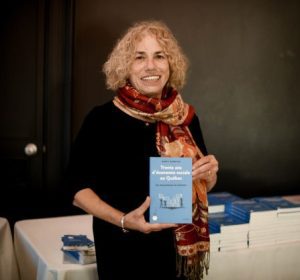

Ghislaine Mboe Ondoa
Ghislaine is founder and president of Actions Solidaires pour un Développement Durable, an association that works to empower women, protect the environment and support vulnerable people. She is currently a young member of the Cameroon Youth Parliament.

Stephanie Guarachi
After studying human ecology, social studies and entrepreneurship, Stephanie founded Camp Ampuy to improve access to quality education for young Bolivians, and now plans to develop the outdoor industry in Bolivia by creating a women’s club to promote hiking and trekking.

Hawa Dramé
As a consultant and trainer specialising in entrepreneurship issues in working-class neighbourhoods, Hawa is developing the Time2start incubator in France to provide comprehensive training programmes to support entrepreneurs from diverse backgrounds and accelerate entrepreneurship.

Financing collective and sustainable economies for the territories
Bongran Yoon began her career in the NGO sector. For the past twenty-five years, she has been working on developments in Korean politics, the economy and society. In early 2010, the rise of concepts such as ‘social enterprise’ and ‘community enterprise’ and the enactment of the Cooperative Framework Act in Korea prompted her to reorient her career towards the social economy. She founded the SALLIM cooperative, a support organisation whose mission is to promote the sharing economy and life in society based on ubuntu, an African term meaning “humanity”. SALLIM has introduced social economy policies in the city of Gwangju in southern Korea. It incubates and encourages social entrepreneurs and activists, and facilitates collaborative projects aimed at solving the city’s social problems. SALLIM supports social economy organisations and businesses, cooperatives, community enterprises and the ON Social Campus.
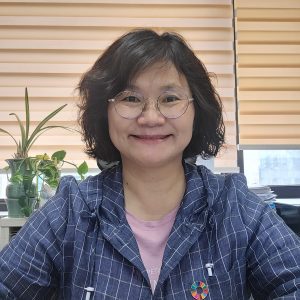
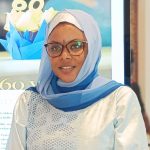
Nana Baraka Abdou Idi
Nana Baraka is very active in the community and is involved with a number of NGOs, taking part in advocacy, awareness-raising and training activities for the most vulnerable sections of society, particularly women, children and young people.
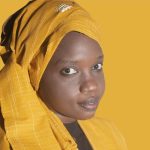
Rokhaya Ba
After failing her studies and with only her baccalaureate, Rokhaya set up and now chairs the Club de Réflexion d’Actions et de Développement (CRAD). The club provides free training for women in processing agricultural products, as well as in leadership and e-marketing.
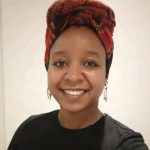
Isabelle Saidou
Isabelle has worked to develop a network of African alumni from her engineering school to promote technical exchanges between Africa and INSA Lyon. She then became president of Act’ICI: Inspirer, Connecter, Impacter, an association she co-founded, dedicated to social innovation by and for young people.


Political dialogue: national/local governments and stakeholders involved in collective and sustainable economies for territories
Fatna El Khiyel trained as a doctor and specialises in public health. In 2017, she was appointed Secretary of State to the Moroccan Minister for Regional Planning and Urban Development, with responsibility for housing and urban policy. She then developed the Moroccan approach to sustainable development. A member of the political bureau of the Popular Movement Party, Ms Khiyel was an advisor to the Joint United Nations Programme on HIV/AIDS (UNAIDS) between 2000 and 2002. A former member of parliament and vice-president of the House of Representatives, she now heads the Arbaoua local council and is vice-president of the Réseau des Femmes Elues Locales d’Afrique (REFE
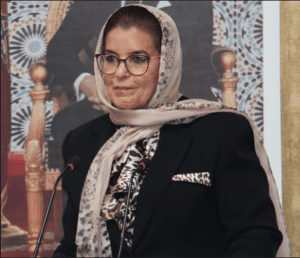
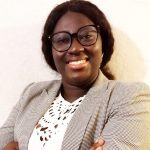
Simone Diouf
Simone is in charge of Programmes for Africa at the Global Network of Women Builders of Peace (GNWP). Passionate about issues of peace, security, gender and economic development, she has worked for the United Nations on these themes, carrying out projects in conflict zones.

Nathalie Pesin
Founder of theVillage des bébés, Nathalie’s mission is to ensure the socio-economic impact of African women in Quebec society by supporting them during the perinatal and early childhood periods by creating a network of specialised training centres (early childhood, midwifery, paediatrics, etc.)

Tchailga Silue
Tchailga works as a project assistant for the Banlieues Du Monde association, and is interested in gender and development issues. A former member of the Regional Youth Council for the Centre Val de Loire region (France), she is currently leading a project to create an information and awareness-raising caravan on civic engagement in secondary schools in Ivory Coast.

